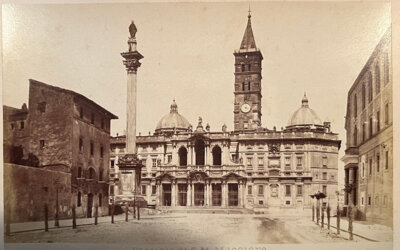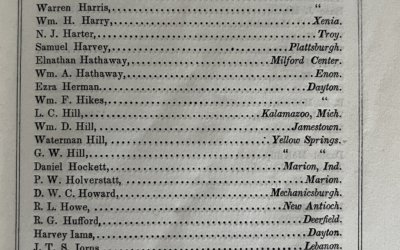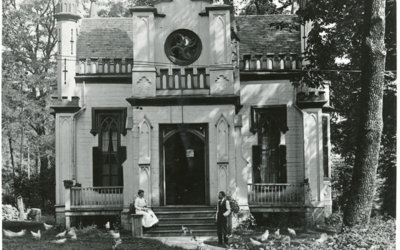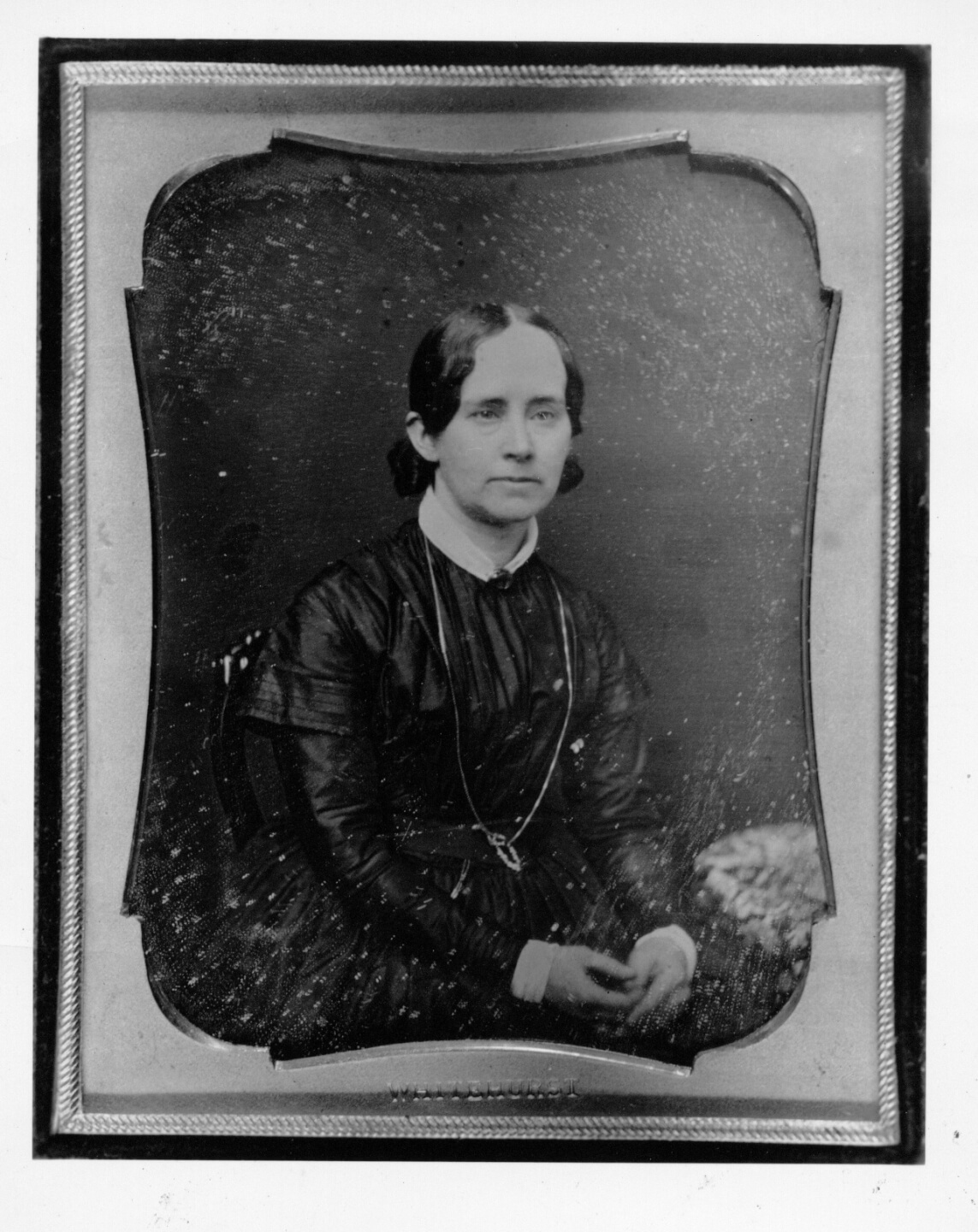
Mary Mann
Women of note abound in the following letters by Mary Mann. Here she responds to correspondence from a favorite Antiochian, Lucy Salisbury Doolittle, who by this point has been a nurse in the US Sanitary Commission for about a year caring for the countless sick and wounded soldiers of the US Civil War. Mary is about five years a widow and removed from Yellow Springs for just as long, living in Concord, MA. The Mr. Doolittle Mary rejoices over is Lucy’s husband Myrick, Antioch College class of 1862, who has just landed a job with the US Naval Observatory. The Mrs. Caldwell she asks Lucy about is Rebecca Wilmarth, former instructor in the Antioch Preparatory School. Her husband, Dr. George Caldwell, had previously held a faculty position at the College as a professor of several sciences, but has since moved on to Cornell where he would stay 45 years and develop a national reputation as an agricultural chemist. William Henry Channing is a family friend of the Manns and a prominent Unitarian minister. His uncle, William Ellery Channing, was a hero of Horace’s and America’s preeminent liberal theologian of the early 19th century.
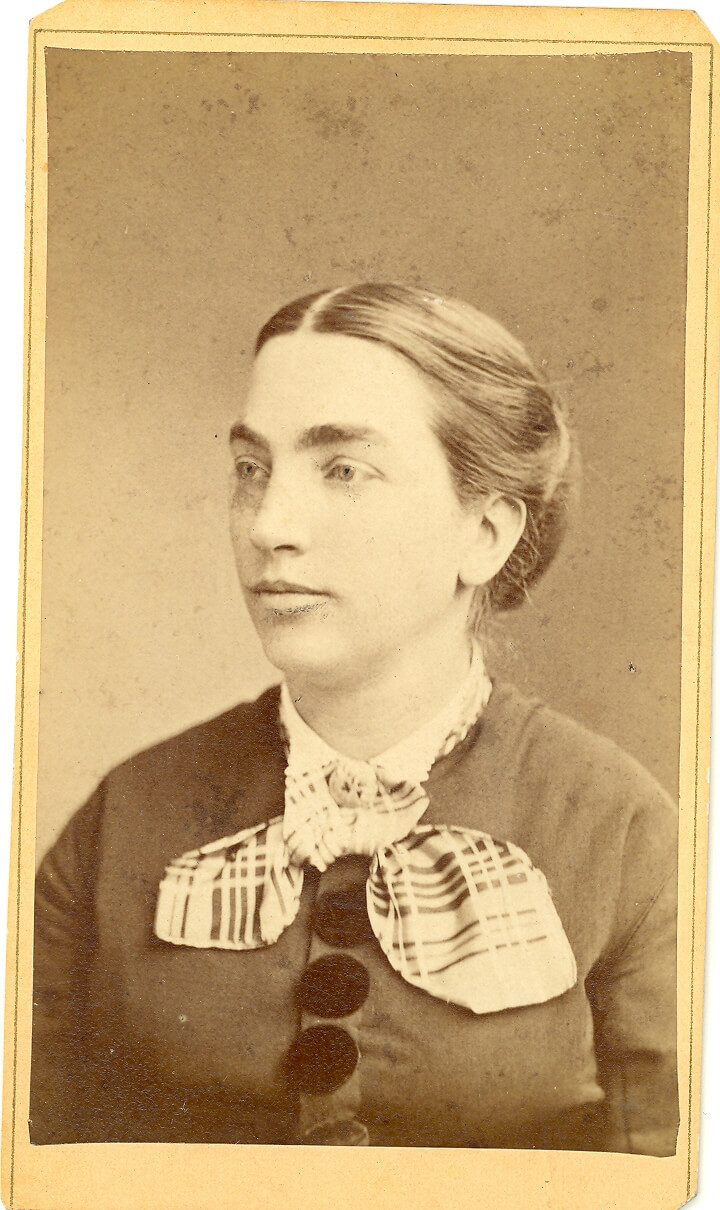
Lucy Doolittle
It seems Lucy has requested books written by Mary’s late husband to distribute to the soldiers in her care. Mary recommends they read “A Few Thoughts For A Young Man,” by far Horace’s most popular lecture ever. The other Mann works she describes as “the speeches and sermons” are respectively “Slavery: Letters and Speeches” (1851) and “Twelve Sermons: Delivered at Antioch College” (1861). The “Christian Inquirer” she offers is a monthly journal published by the American Unitarian Association. Mary’s Memoir, titled “Life of Horace Mann,” came out in 1865, and her boys are the three Mann brothers Horace Jr., who attends the pioneering Lawrence Scientific School of Harvard University; George, a second-year Harvard undergraduate; and Benjamin, still in his teens. Lucy Doolittle went on to a career in Kindergarten, but not to teach as Mary suggests, and not in Concord, MA, as she seems to hope, but rather as an advocate and later board member of the Columbian Kindergarten Association of Washington, D.C.
The Camp Chase Mary refers to in her postscript was near Columbus, not Cleveland, in the neighborhood now known as Hilltop. Named for Lincoln’s Secretary of the Treasury, former governor of Ohio Salmon P. Chase, Camp Chase began in 1861 as a training center for Union army recruits, but by 1864 it had become notorious as an overcrowded and unsanitary prisoner of war camp that would claim over 2,000 lives. Emily Botsford, who Mary says has gone to Camp Chase as a matron (a term for a woman prison official), had previously been an Antioch faculty member.
The most famous name of any dropped by Mrs. Mann in this correspondence is Dorthea Dix, who throughout the war held the position of the nation’s top caregiver as Superintendent of Army Nurses, an office created by Abraham Lincoln. Dix famously selected women over 35 of plain appearance to be Army Nurses, who she saw as less likely to be exploited by men than younger more attractive women. She also routinely dismissed those she had not trained herself, much to the consternation of Lucy Doolittle’s volunteer Sanitary Commission. Mary nonetheless recommends Lucy to Dix due to the affectionate and effective relationship Miss Dix had built with Horace Mann in the 1830s when the two were allies and leaders in the cause of proper care for the mentally ill.
Concord, January 17, 1864
My dear Lucy,
I am not likely to forget you or any of the lovely ones whose faces loom up to me out of that dark and murky cloud which Antioch College life is to me when I look back upon it. It was illuminated then by a sun that has set, and tho’ the sun has risen elsewhere, and I expect again to rejoice in the light of it, that episode in my life I sometimes wish I could forget. But it is redeemed by many memories of individuals, and you always gratified my moral sense and my taste, so I love to be reminded of you—and to rejoice for Mr. Doolittle that such a sun has risen upon his life. I was not aware that he deserved it till I heard of the fact, and then I concluded that he must be worthy of it, although I had never known him, but I felt that you would not be likely to make a mistake, after your deep experiences in so many ways. You have been the solace of many lives—and now the soldiers are enjoying you a little while. I felicitate them upon having you for a nurse. Do you ever see Mrs. Caldwell? I have a niece, Maria Mann, at Georgetown Heights, in the Orphan Asylum lately established on the Cox estate—and I shall tell some other friends of mine that you are there, for I shall like to have them know you, Rev. Wm. Channing and Mrs. Prof. Johnson and her sister Miss Donaldson, some of the saints of the earth—and Mrs. Barker and her husband from this place. Mrs. Barker is helping Dr. Caldwell and resides in his family.
You shall have all the books and speeches I can find for your boys—Both volumes in which they were collected are out of print, and I am just about republishing them. I do not wish any pay for them—It will be enough for you to pay the express on them—unless, indeed, I can find a way to send them to you privately. Perhaps I can through Mrs. Barker’s friends. Let them read “Thoughts for a Young Man” first, and then they will be ready for the speeches and the sermons. I should like—but I shall send you my Christian Inquirer, for it is full of gems all the time. I have long been wishing I could get it to the soldiers, but did not know to what point to send it.
When my Memoir is published, I shall send it to you, for you will be one of those who will read all the record of that life with interest. You would not know my boys—the two eldest look like men now, tho’ they are still boys to me—They are all doing well in study and behavior, and are still in the home nest—but Horace tells me every day that if I do not move to Cambridge he must go without me—which he does not like to do—but he is in the Scientific School and finds it wearisome to go to C. every day—next fall, George enters the Sophomore class, and Benji will be following on, so I mean to go there as soon as I can. Should not you like to come to Concord to live and keep school? I will sell you my nice house and you will be a blessing to the town. Seriously, dear Lucy, you ought to keep a Kindergarten School for the benefit of so many little ones as you could gather around you.
With sincere affection, your friend
Mary Mann
Mrs. Bottsford has lately gone into Camp Chase as a matron. I think it is near Cleveland. How many of my friends are engaged in the good work of the day, either among soldiers or freedmen.
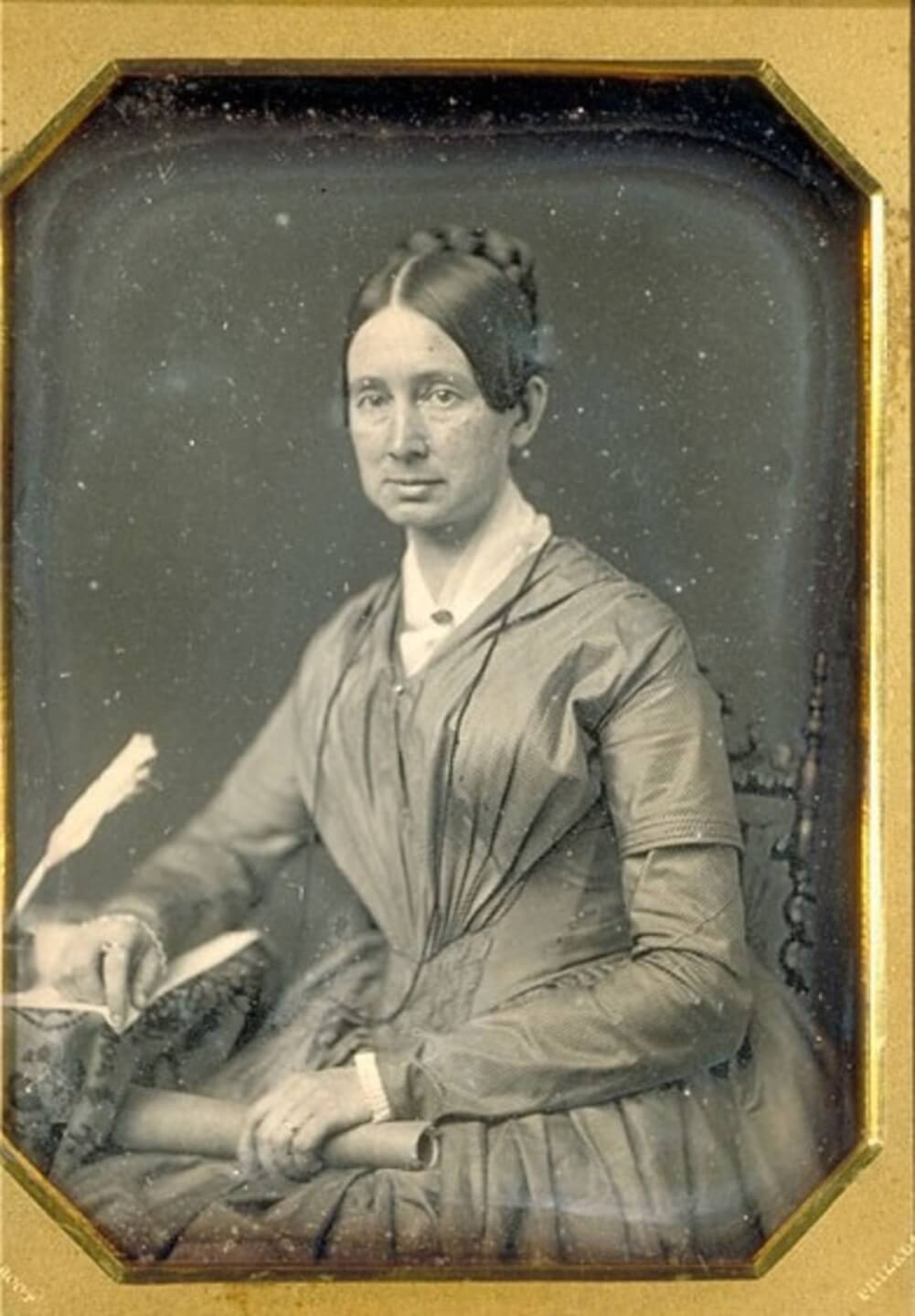
Dorthea Dix
Letter from Mrs. Horace Mann to Lucy S. Doolittle, enclosing letter of Introduction to Dorothea Dix
My dear Lucy,
If you have any desire to see Miss Dix, and have not yet, you can take or send this note to her. I like to remind her of me occasionally, for she loved my husband most dearly and so did he love her. She was one of his “glorious women”.
Very affectionately yours,
Mary Mann
Mrs. Mann’s letter to Miss Dix
Concord, Jan. 18, 1864
My dear Miss Dix,
Allow me to introduce one of our dearest and loveliest Antioch graduates, in the person of Mrs. Lucy S. Doolittle, of the Demarest Hospital. You will find her equal to any amount of devotion and self-sacrifice in the good cause. Happy are the soldiers who have her for a nurse and comforter. I do not know what you are made of. I think you will last always. I have heard that another of my friends, Mrs. Dr. Caldwell, has found favor with you. You have treasures in that household and now Mrs. Barker is added to the number, the Dr. must be very strong in his department, for her whole heart is in the work. I should think, from what I hear of you, that your nerves must have suffered from this great tension and that it would be the part of wisdom in you to drop your mantle upon some younger sister. But perhaps you do not care to live a moment after you must cease to work in this gigantic fashion. My work in a corner looks trivial by the side of yours—-but I hope to turn out three good boys worthy of their father. They are all at home, working well in their sphere, which, at present, is that of study!
I think we are improving as a nation—which is the only consolation for this frightful war. I have of late been reading and copying letters from my dear husband upon the causes of all this trouble—he predicted all this, but not so soon. I shall publish them before long. One of his nieces, Maria Mann, in now at the Orphan Asylum on Georgetown Heights. I consider her next to you in energy. She did a noble work in Helena, Arkansas, last year.
Yours with great regard,
Mary Mann
“Songs From the Stacks” is a regular selection from Antiochiana: the Antioch College archives by College Archivist Scott Sanders.

